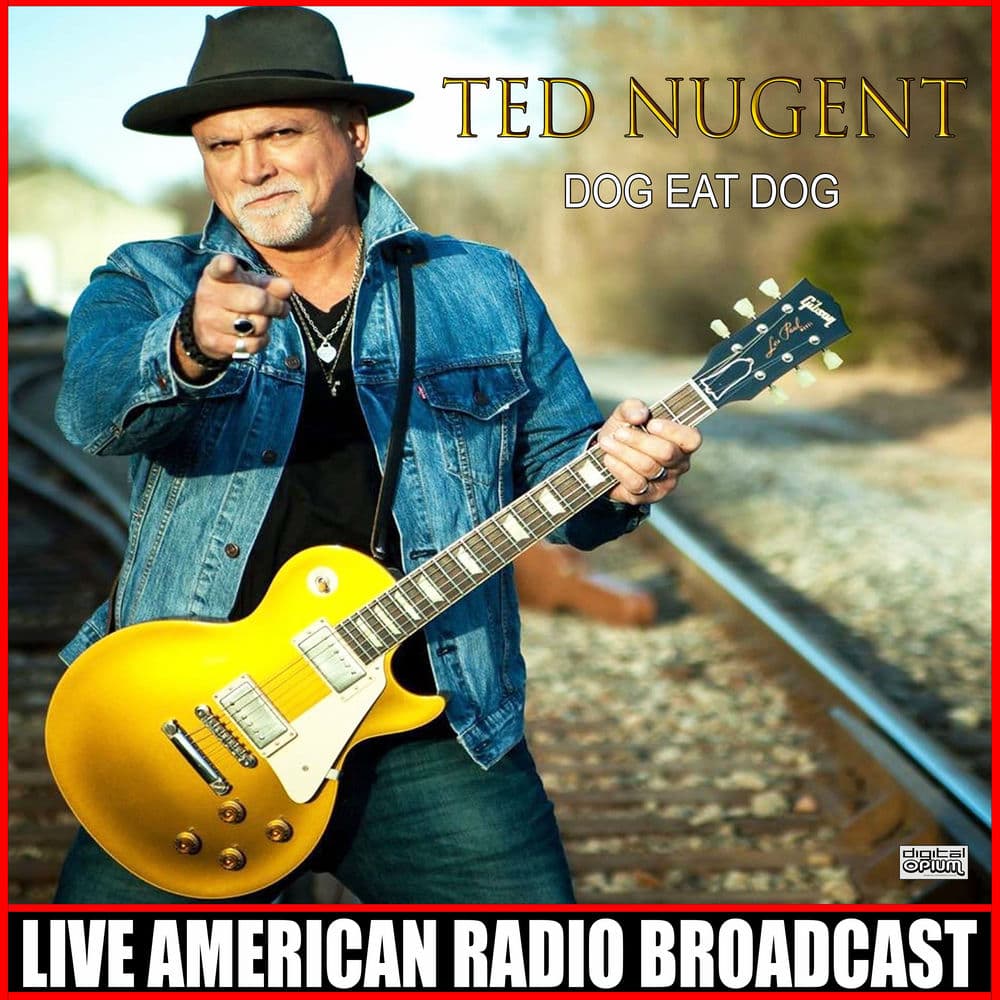
The year 1976 marked a pivotal moment in the landscape of arena rock, a period characterized by large-scale tours and fiercely intense musical battles. At the forefront of this theatrical and sonic revolution was the Motor City Madman himself, Ted Nugent. With the release of his sophomore album, Free-for-All, Nugent delivered an unyielding declaration of dominance that propelled the album to number 24 on the Billboard 200 charts. Yet beneath this commercial success brewed a powerful and almost tragic internal struggle, reflected most vividly in one particular track — “Dog Eat Dog.”
Though never released as a single, “Dog Eat Dog” stands as a visceral representation of the band’s inner chaos. It epitomizes the brutal, cutthroat reality of the 1970s rock industry, where survival meant ruthless competition. The raw, foundational track embodies the fierce environment of hard rock’s golden era, carrying an intensity that resonates with those familiar with the high-stakes battle for relevance and dominance among rock bands.
The backstory behind “Dog Eat Dog” is inseparable from the turmoil engulfing the band during the creation of Free-for-All. Vocalist and rhythm guitarist Derek St. Holmes dramatically exited mid-recording, plunging the sessions into crisis. In response, Nugent enlisted guest vocalists such as the flamboyant Meat Loaf to fill the void. Yet remarkably, “Dog Eat Dog” features St. Holmes on vocals, transforming the song into a final, invective-laden collaboration — a bitter and shouted farewell echoing the band’s fracturing unity.
“The tension during the recording was palpable. ‘Dog Eat Dog’ wasn’t just a song; it was a statement — the last roar of a band fraying apart,” explained Derek St. Holmes, vocalist and rhythm guitarist of the band during the *Free-for-All* sessions.
The aggressive theme of merciless survival is more than metaphorical; it mirrors the very real split within the group and the harsh realities of the music business. This conflict—and the creative friction it spawned—became the lifeblood of the song’s relentless energy. The band’s implosion fueled a piece that is as much a soundtrack of survival as it is a testament to the era’s anarchic spirit.
Musically, “Dog Eat Dog” strikes as a relentless hard rock assault. Anchored by a heavy, simple riff, the song delivers a raw power experience that propels listeners as if charging into battle. The drums and bass throb with hypnotic intensity beneath Nugent’s signature guitar work. The emotional core is found in the raw, shouted vocals and, critically, in Nugent’s frantic, feedback-soaked guitar solo — a scream of sound channeling chaos and desperation.
“Ted’s solo on ‘Dog Eat Dog’ was less a melody and more a scream — an expression of everything we were going through. It’s pure chaos and raw emotion,” recalled Robert Johnson, longtime roadie and friend to the band during the *Free-for-All* era.
For those who experienced the vigor of 1970s hard rock arenas, “Dog Eat Dog” remains a potent reminder of the genre’s raw power. This track is not merely a song but a fierce and unfiltered document of survival amidst the harsh competition of rock and roll’s jungle. It stands the test of time as a dramatically aggressive piece of rock history, offering a glimpse into the savage elegance required to persevere in the brutal music industry of the 1970s.